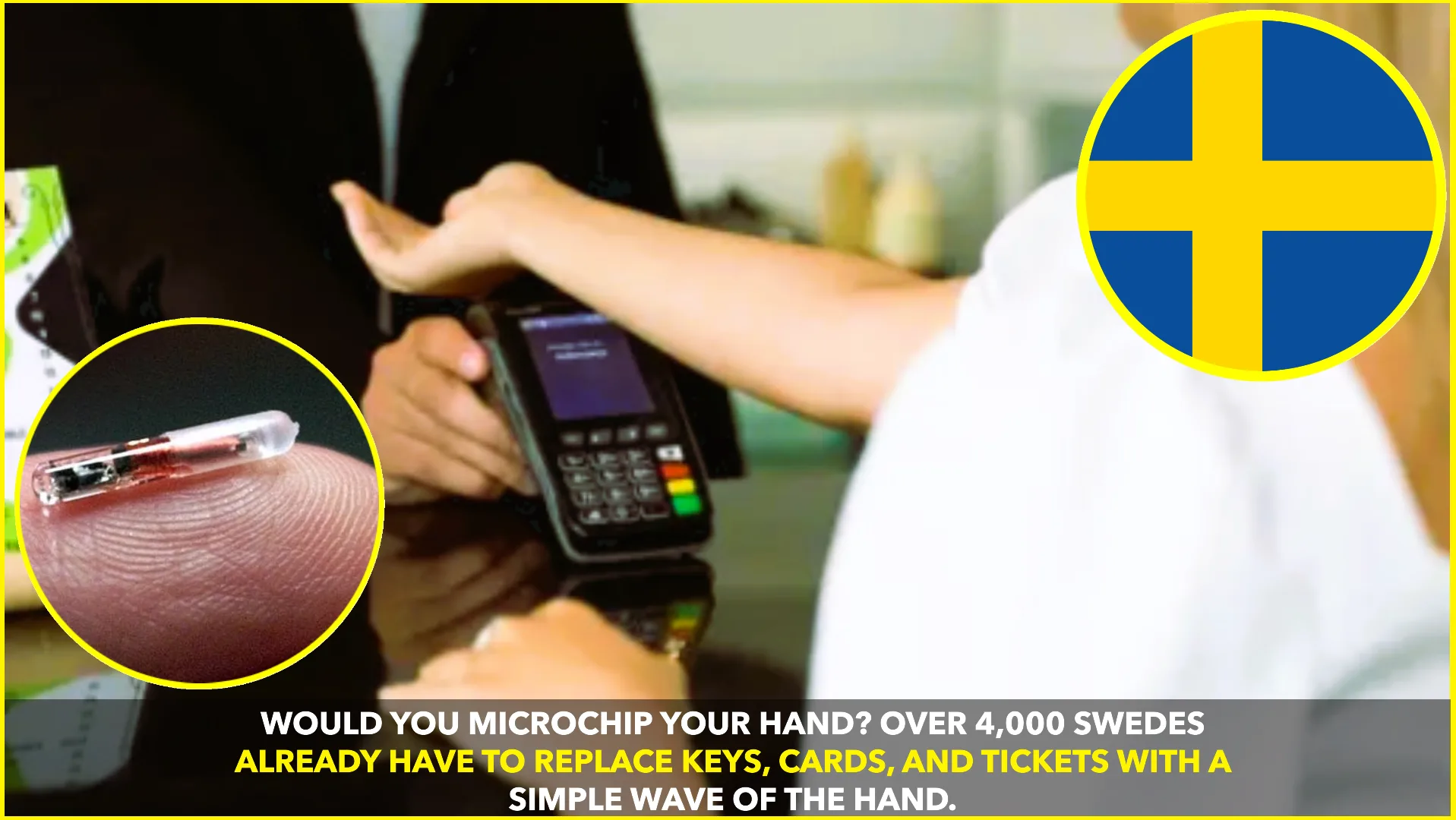In Sweden, a quiet revolution is unfolding inside people’s hands. More than 4,000 Swedes have chosen to implant tiny microchips beneath their skin, allowing them to unlock doors, pay for transport, and even share personal details with just a wave. The chips, roughly the size of a grain of rice, symbolize the nation’s growing comfort with technology embedded in everyday life.
How It Works
These implants are passive RFID (Radio Frequency Identification) chips. Unlike smartphones or smartwatches, they do not need a battery or charging. A scanner reads the information when the hand is placed near it, much like contactless cards. The technology is largely being offered by companies such as Biohax International, a Swedish pioneer in this field.
For users, the experience is seamless. A quick wave of the hand can unlock an office door, validate a train ticket, or even pull up a LinkedIn profile at networking events. What once required a wallet or smartphone is now tucked discreetly beneath the skin.
Why Sweden?
Sweden has long been known for its digital-first culture. From widespread use of mobile payments like Swish to one of the lowest cash usage rates in the world, Swedes are quick to adopt innovations that simplify life. In this context, biohacking—or “body hacking”—has found fertile ground.
A strong trust in institutions and high regard for science and innovation also play a role. For many Swedes, implanting a chip is seen less as a privacy gamble and more as a practical upgrade.
The Popular Uses
The implants serve multiple functions:
- Access Control: Replacing physical keys and entry cards.
- Transport Tickets: Several Swedish rail companies already allow passengers to scan their chip for boarding.
- Digital Identity Sharing: Users can instantly share contact details or professional profiles with a swipe.
- Payments (in development): While not yet mainstream, the potential to use chips for secure payments is being explored.
The Debate: Convenience vs. Concerns
Despite the enthusiasm, experts are urging caution. Data security remains a major concern. While RFID chips store limited information, skeptics fear they could one day be hacked or misused for surveillance.
Dr. Ben Libberton, a microbiologist at MAX IV Laboratory in Sweden, notes that while the chips themselves are medically safe, the “bigger questions lie in how data connected to the chips is managed and protected.”
Health concerns, though currently minimal, cannot be ignored. The implant procedure is considered safe, but long-term effects of carrying foreign devices under the skin are still largely unknown.
Global Perspective
While Sweden leads in adoption, microchip implants are slowly spreading across Europe and beyond. Small groups in countries like Germany and the UK have experimented with the technology, though cultural differences and privacy skepticism have slowed uptake compared to Sweden.
In the United States, the idea has sparked more controversy than acceptance. For many, the thought of embedding technology into the body raises fears of surveillance, hacking, and loss of personal autonomy.
The Future of Body Tech
Advocates believe this is just the beginning of a broader biohacking movement. As chips become more advanced, they could integrate health data, financial systems, or even act as digital passports. For now, their role remains largely practical and symbolic—a glimpse into a world where technology and the human body merge more closely than ever before.
As Sweden demonstrates, what may sound like science fiction is quickly becoming reality. The question for the rest of the world is not whether the technology will arrive, but whether people will embrace it.
Source:
BBC News – “Thousands of Swedes are inserting microchips under their skin” (bbc.com)










